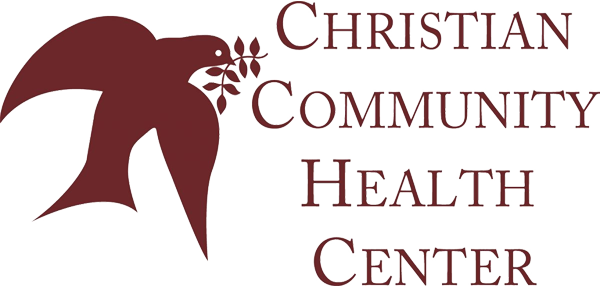To receive services through this program, individuals must qualify under HUD-defined chronically homeless, identified as an individual or family that is homeless and resides in a place not meant for human habitation, a safe haven, or in an emergency shelter, and has been homeless and residing in such a place for at least 1 year or on at least four separate occasions in the last 3 years; and that the individual or family has a head of household with a diagnosable substance use disorder, serious mental illness, developmental disability, post-traumatic stress disorder, cognitive impairments resulting from a brain injury, or chronic physical illness or disability.
Our supportive housing programs include Amani House, Footprints, EnHarmony, and Brainerd.
Footprints
CCHC’s Footprints Homeless Outreach program serves women and men, with or without children, who are chronically homeless. This includes domestic violence victims, women in the sex trade, and re-entry populations, who present with related high risks concerns including substance abuse, domestic violence, past sexual abuse, sexually transmitted diseases including HIV and mental illnesses.
Amani House
Amani House is a 60-bed interim shelter that accepts single women and women with children impacted by homelessness and or domestic violence, as well as intact families. Children (both male and female) up to age 18 are welcomed with their parent. Intact families are accepted; we are able to accommodate large families of up to six (6) in the household. Unaccompanied female youth ages 18 and up are also accepted. For information, please visit https://resources.healthychicagobabies.org/locations/christian-community-health-center-3/amani-house (opens new tab)
Interventions
CCHC utilizes an interim housing shelter model providing housing stabilization and supportive services to promote self-sufficiency and supports participants to obtain permanent supportive housing within 120-240 days.
Who receives services?
Homeless individuals and families referred through DFSS and the Salvation Army.
What services do clients receive?
- Case Management
- Housing Assessment and Planning
- Group Level Interventions
- Wrap Around Referral Services
How do clients get connected?
Through referral from DFSS and the Salvation Army
EnHarmony
EnHarmony Permanent Supportive Housing Program is a HUD funded program. It was developed to meet the needs of people who are chronically homeless. The goal of the program is to provide stable permanent housing to clients in order to improve their overall health and quality of life. This program enables eligible persons to secure decent, safe, and sanitary housing in the private rental market by subsidizing a portion of the household’s monthly rent. Assisted households are responsible to pay no more than 30% of their adjusted monthly income for rent and utilities. The rent plus the utility allowance must be reasonable and may not exceed HUD’s Fair Market Rent for the area.
Intervention
CCHC utilizes a housing first, harm reduction model and believes that when chronically homeless individuals are able to focus their energies on healing and maintaining their health, (rather than coping with the challenging circumstances that arise from living on the streets and in shelters), their health and quality of life will improve.
Who Receives Services?
- Chronically Homeless unaccompanied adults -Living in the streets or shelters continuously for 12 months or -4 episodes of homelessness within 3 years (totally a minimum of 120 days in the last 13 months to 3 years)
- Who has a Chronic Medical Condition and a Disability
How Do Clients Get Connected?
- The City of Chicago’s Coordinated Entry System (CES)
What Services Do Clients Receive?
- “Housing First” – Permanent Supportive Housing
- Specialized Case Management Services- Integrated with IDHS- SHP Funded Mental Health and Substance Abuse Multidisciplinary Meetings
- “Wrap around services” as needed – referrals to substance abuse treatment; counseling services; employment training; benefit acquisition, and healthcare
Brainerd
Brainerd Park Apartments is a mixed income/affordable housing 36 rental unit facility with 1-4 bedrooms. Apartments are available for families at or below the 60% area median income. Brainerd Park Apartments is well located in Chicago’s Brainerd neighborhood, and close to public transportation (Metra and bus lines). The apartment rentals all feature carpeting, ceramic tile baths, ceiling fans, thermal pane windows and are cable ready. Landscaped gardens and large floor plans make this the ideal place to call home. In addition to its well-kept grounds, this Chicago Brainerd community has a large community room, exercise and computer center for resident use. The building also features 24-hour laundry, intercom entry system and elevator access.
CCHC also staffs a full time Resident Service Coordinator. As an ambassador of CCHC, the RSC is responsible for assessing the needs of the residents, linking the residents with the necessary services available through CCHC (Medical, Oral Health, Mental Health, Substance Use Disorder/MAT, Insurance), and coordination of workshops and events to enhance residents quality of life (finances, health/wellness). The RSC is also responsible for building relationships with community organizations and leaders to facilitate involvement and a sense of community with the residents.





